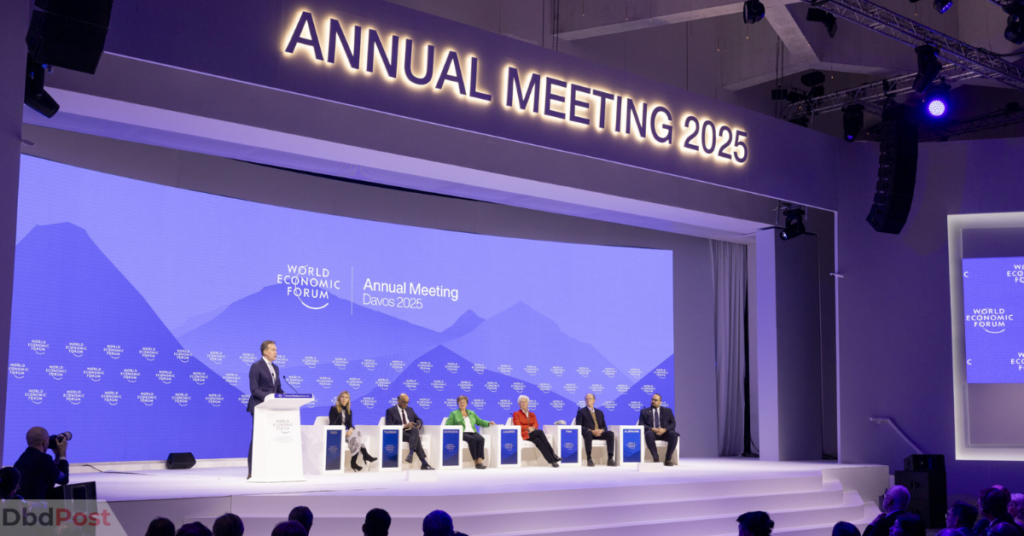Global leaders gathered in Davos for the 2025 World Economic Forum (WEF) Annual Meeting. The summit focused on navigating artificial intelligence, economic transformation, and geopolitical uncertainty.
Over 3,000 leaders participated, including heads of state, executives, and policy influencers.
This year’s theme, “Collaboration for the Intelligent Age,” emphasized collective action. Discussions unfolded against economic turbulence, technological advancements, and rising geopolitical tensions.
Political figures, business moguls, and thought leaders shared insights into the evolving global landscape.
Former U.S. President Donald Trump, European Commission President Ursula von der Leyen, and UN Secretary-General António Guterres took center stage. They stressed the need for strong international alliances.
Economic disparities, AI governance, and digital transformation were key topics.
Artificial intelligence was a significant focus. Tech leaders called for regulatory frameworks that balance innovation with security and urged global cooperation to ensure AI benefits everyone without deepening societal divides.
The forum unveiled partnerships dedicated to AI governance. Data privacy regulations and global AI literacy initiatives were key priorities, and ethical AI implementation remained a top concern.
Economic resilience was another pressing issue. Inflation, shifting supply chains, and evolving labor markets shaped the conversation. Leaders emphasize inclusive policies that foster job creation and sustainable growth.
Cross-sector collaboration was critical. Economic strategies must adapt to technological disruptions, geopolitical shifts, and environmental goals requiring innovative solutions.
Several high-impact initiatives were launched. These initiatives aimed to enhance global stability through regional partnerships. Economic cooperation, trade facilitation, and investment in emerging markets took center stage.
Climate action remained a priority. Leaders reinforced commitments to carbon reduction. Sustainable business practices and innovation-driven green initiatives received strong support.
Cybersecurity and digital sovereignty also emerged as critical topics. As nations increasingly rely on digital infrastructure, they emphasize the need for stronger defenses.
Protecting data integrity and securing supply chains became integral discussions.
Energy transition took center stage. Leaders examined ways to reduce reliance on fossil fuels while ensuring energy security. Investment in renewable sources and sustainable energy grids gained traction.
Healthcare innovation played a pivotal role in discussions. The aftermath of the pandemic underscored the necessity for resilient health systems. Investment in biotechnology, digital health solutions, and pandemic preparedness became key action points.
The summit’s message was clear: The world is at a crossroads of technological advancement and economic restructuring, and collaboration is more crucial than ever.
With AI shaping industries and economic policies evolving, decisive action is necessary. Geopolitical complexities demand nuanced diplomacy. Global leaders must prioritize informed, cooperative strategies for a stable and prosperous future.
- 107shares
- Facebook Messenger
About the author
Draven Watson is a seasoned Global News Expert at DbdPost.com with extensive experience in analyzing and reporting international developments. Known for his sharp insights and comprehensive coverage, Draven unpacks the complexities of global events, offering readers a deeper understanding of the issues shaping our interconnected world.





